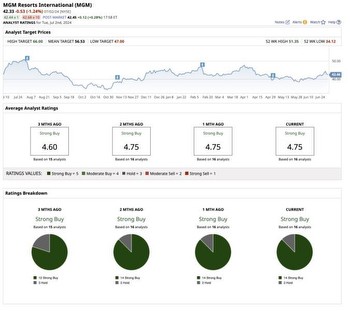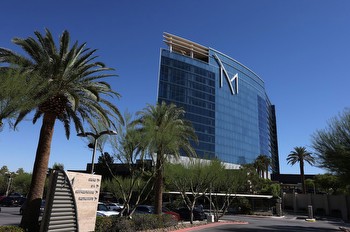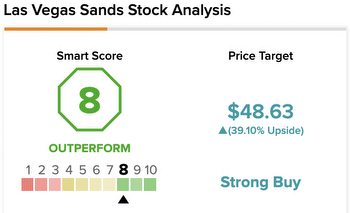PENN: 2 Casino & Gambling Stocks Wall Street Predicts Will Rally More Than 70%

The COVID-19 pandemic-led restrictions proved to be a massive hurdle for the casino & gambling industry, as physical casinos were forced to remain closed. However, companies providing online gambling services were able to generate significant returns. Along with rising demand for online gambling, the reopening of physical casinos with fast-paced vaccinations should drive the industry’s growth in the upcoming months. According to Research and Markets, the global online gambling market is expected to reach $112.09 billion in 2025, growing at a CAGR of 12%.
$216.3 billion budget proposal. In addition, the State Gaming Commission recently launchedlegal, app-based sports betting across the Empire State. With the increasing legalization of gambling across the country, many companies operating in this space are well-positioned to benefit.
Given this backdrop, Wall Street analysts expect gambling stocks Penn National Gaming, Inc. (PENN) and Bally’s Corporation (BALY) to rally more than 70% in the next 12 months.
Penn National Gaming, Inc. (PENN)
PENN owns and manages 41 gaming and racing properties in 19 states and operates video gaming terminals. It operates through four segments: Northeast; South; West; and Midwest. It also owns various trademarks and service marks, including Ameristar, Argosy, Boomtown, and Greektown.
On December 22, 2021, PENN launched the Hollywood Casino Morgantown, the fourth gaming and entertainment facility in Pennsylvania. Todd George, PENN’s Executive Vice President of Operations, said, “This next-level technology, which is in place at all four of our Pennsylvania casinos, further supports our omnichannel business approach in which we provide the best experiences whether people are playing at our properties or across our numerous online offerings.”
PENN’s total revenues increased 33.8% year-over-year to $1.51 billion for the third quarter ended September 30, 2021. Its adjustedEBITDA grew 6% year-over-year to $364.30 million. Also, the company’s cash and cash equivalents came in at $2.73 billion for the period ended September 30, 2021, compared to $1.85 billion for the period ended December 31, 2020.
Analysts expect PENN’s EPS to come in at $0.54 for the quarter ended December 31, 2021, representing a 671.4% year-over-year increase. The company’s revenue is expected to increase 29.3% year-over-year to $1.47 billion for the quarter ending March 31, 2022. Wall Street analysts expect the stock to hit $72.69 in the near term, which indicates apotential upside of 73.4%.
Bally’s Corporation (BALY)
BALY owns and operates gaming and racing facilities in the United States. Its gaming and racing facilities include slot machines and various casino table games, and restaurant and hotel facilities. It owns and operates 12 casinos that comprise 13,308 slot machines, 460 game tables, and 3,342 hotel rooms, as well as a horse racetrack across eight states.
On November 8, 2021, BALY announced that it had been awarded one of nine licenses to conduct online sports betting in the State of New York. With New York’s major professional sports franchises consisting of some of the most storied teams in all of the sports, as well as a diverse base of devoted sports fans, this license provides BALY’s with significant opportunities to showcase its best-in-class sports betting platform and augment its player database.
BALY’s total revenues increased 169.9% year-over-year to $314.78 million for the third quarter ended September 30, 2021. Its adjusted EBITDA grew 105.3% year-over-year to $77.98 million. Also, the company’s retail casinos’ net income came in at $49.39 million, up 123.6% year-over-year.
For the quarter ending March 31, 2022, analysts expect ASX’s EPS and revenue to increase 256.7% and 226.4% year-over-year to $0.47 and $627.58 million, respectively. Wall Street analysts expect the stock to hit $59.86 in the near term, which indicates apotential upside of 103.9%.
PENN shares were trading at $40.92 per share on Friday afternoon, down $1.01 (-2.41%). Year-to-date, PENN has declined -21.08%, versus a -7.79% rise in the benchmark S&P 500 index during the same period.







































